R&D Processes for Cancer Drugs Will Accelerate Thanks to a Locally Developed Kit at Karabük University::
A TÜBİTAK-supported project, led by Assoc. Dr. Hacı Mehmet Kayılı from Karabük University, aims to develop local kits that will accelerate the sample preparation and purification steps used in the R&D processes of drugs used especially in cancer treatment.
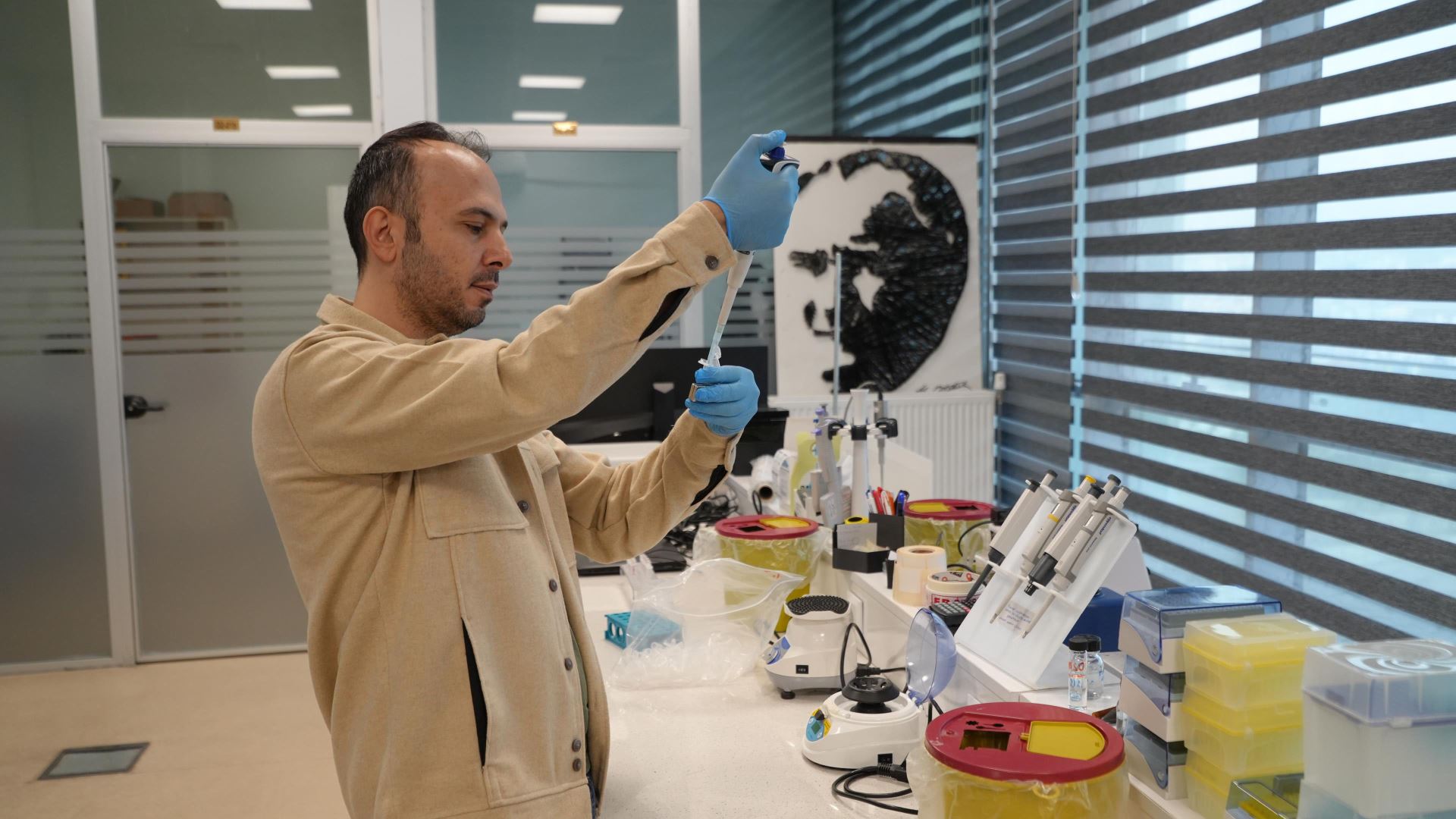 Details: https://kbumedya.karabuk.edu.tr/kbude-gelistirilecek-yerli-kit-sayesinde-kanser-ilaclarina-yonelik-ar-ge-surecleri-hizlanacak
A Project by a Karabük University Academic Transforms Waste Mandarin Peels into Wound Dressings and Food Packaging:
In a TÜBİTAK-supported project led by Assoc. Dr. Yasin Akgül at Karabük University, biodegradable wound dressings and antibacterial food packaging are being developed from waste mandarin peels.
Details: https://kbumedya.karabuk.edu.tr/kbude-gelistirilecek-yerli-kit-sayesinde-kanser-ilaclarina-yonelik-ar-ge-surecleri-hizlanacak
A Project by a Karabük University Academic Transforms Waste Mandarin Peels into Wound Dressings and Food Packaging:
In a TÜBİTAK-supported project led by Assoc. Dr. Yasin Akgül at Karabük University, biodegradable wound dressings and antibacterial food packaging are being developed from waste mandarin peels.
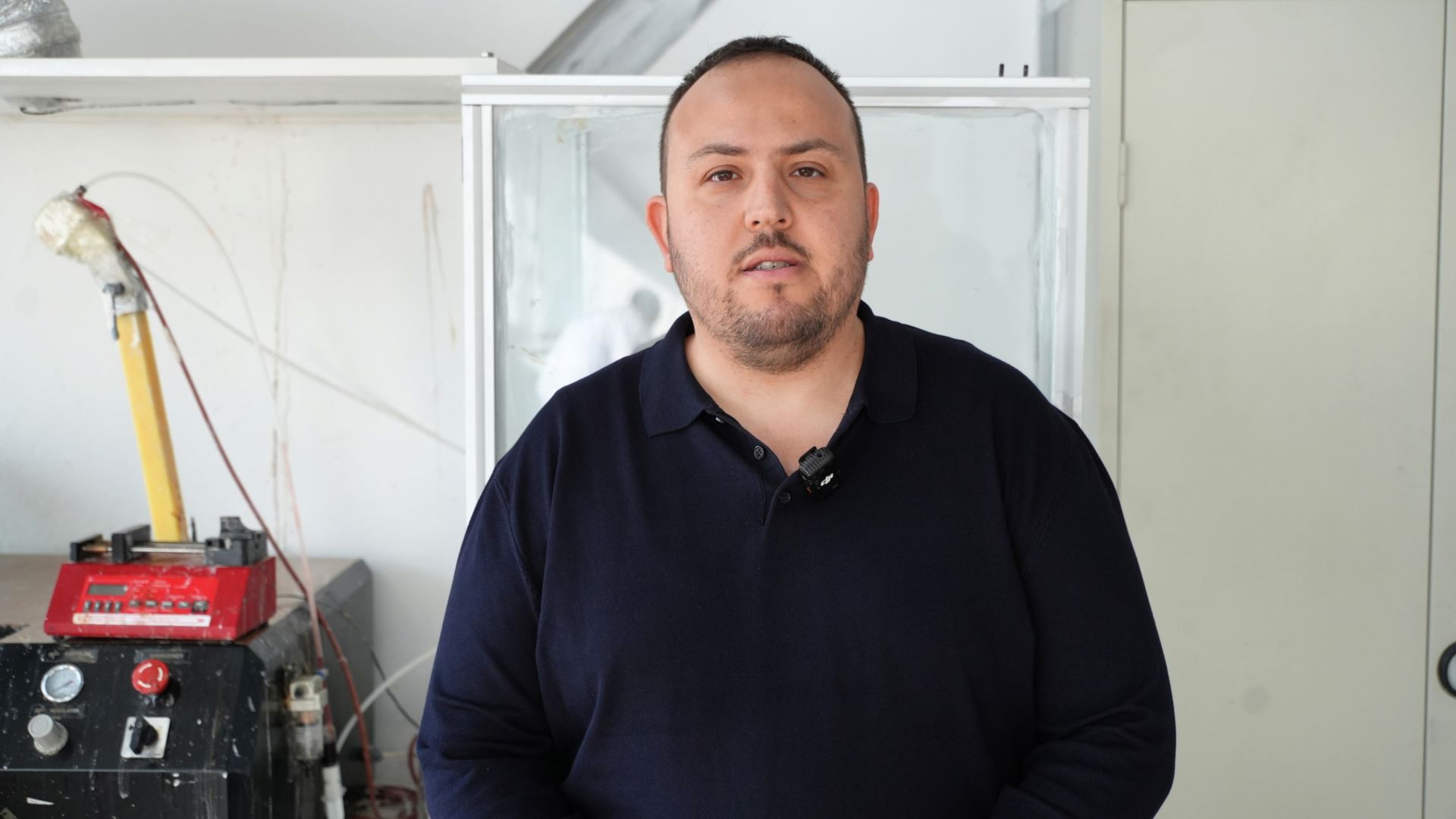 Details: https://kbumedya.karabuk.edu.tr/kbulu-akademisyenin-projesiyle-atik-mandalina-kabuklari-yara-ortusu-ve-gida-ambalajina-donusuyor
Academic Advancement and Family Pride Meet in One Frame at Karabük University:
This year, Karabük University transformed its Academic Advancement Ceremony into a day of pride with the participation of families. At the presentation ceremony, Karabük University Rector Prof. Dr. Fatih Kırışık presented Prof. Dr. Erkan Koç with his professorship certificate.
Details: https://kbumedya.karabuk.edu.tr/kbulu-akademisyenin-projesiyle-atik-mandalina-kabuklari-yara-ortusu-ve-gida-ambalajina-donusuyor
Academic Advancement and Family Pride Meet in One Frame at Karabük University:
This year, Karabük University transformed its Academic Advancement Ceremony into a day of pride with the participation of families. At the presentation ceremony, Karabük University Rector Prof. Dr. Fatih Kırışık presented Prof. Dr. Erkan Koç with his professorship certificate.
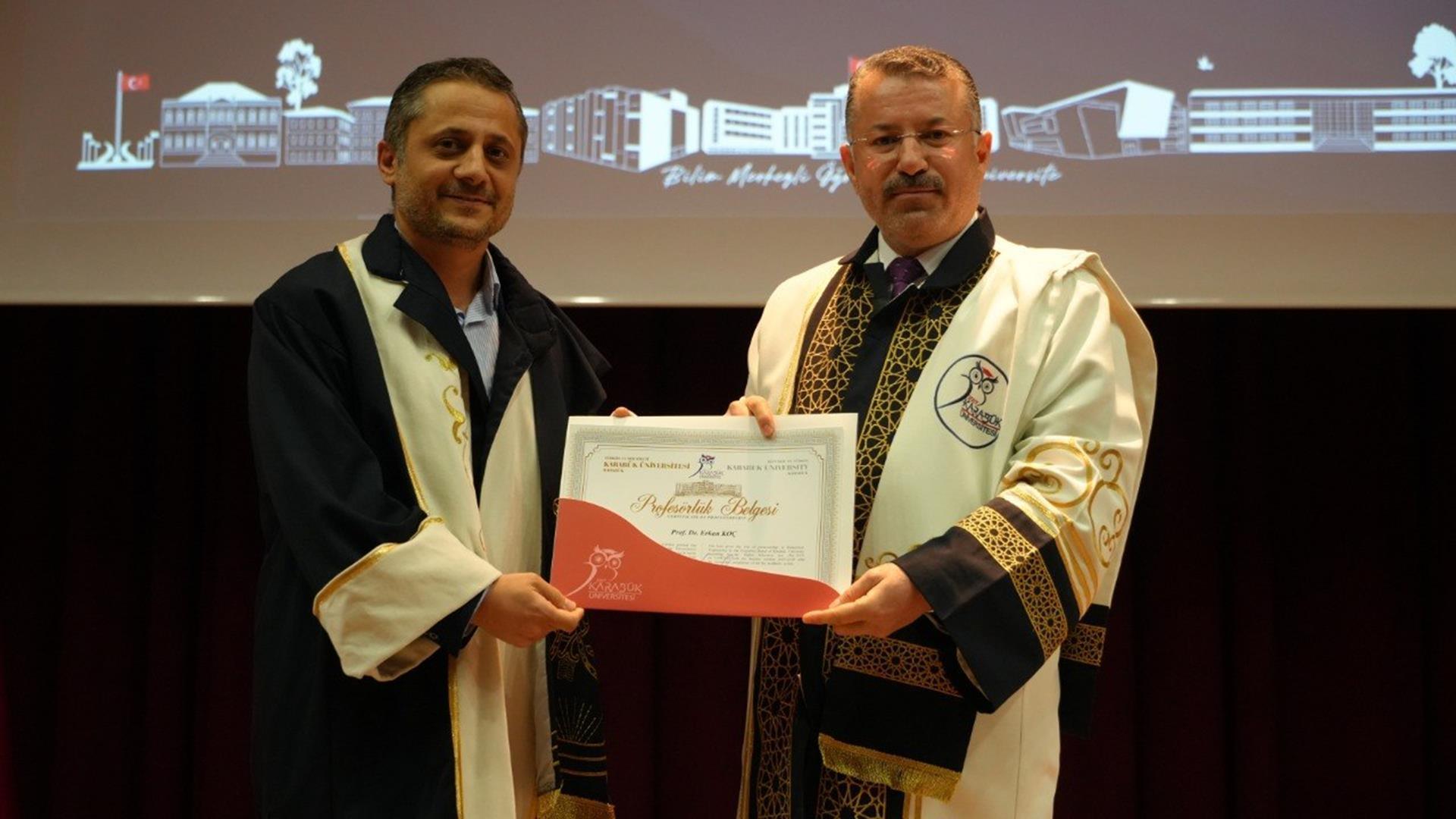
.jpg) Details: https://kbumedya.karabuk.edu.tr/kbude-akademik-yukselis-ve-ailelerin-gururu-ayni-karede-bulustu
Academic Rise and Family Pride Come Together in the Same Frame at KBU:
Details: https://kbumedya.karabuk.edu.tr/kbude-akademik-yukselis-ve-ailelerin-gururu-ayni-karede-bulustu
Academic Rise and Family Pride Come Together in the Same Frame at KBU:
This year, KBU made its Academic Promotion Ceremony a day of pride with the participation of families. At the ceremony, Karabuk University Rector Prof. Dr. Fatih Kırışık presented Prof. Dr. Erkan Koç with a professorship certificate.

.jpg) Details: https://kbumedya.karabuk.edu.tr/kbude-akademik-yukselis-ve-ailelerin-gururu-ayni-karede-bulustu
A Revolution in Health from KBU: Smart Capsule Project at TEKNOFEST Final:
Academicians and students of Karabuk University’s Biomedical Engineering Department have implemented a groundbreaking project in drug treatment. The “smart capsule” project, which can be guided by a magnetic field within the digestive system and can release medication only to the target area, ranked in the top 10 in the health field and advanced to the finals of the TEKNOFEST 2025 University Students Competition.
Details: https://kbumedya.karabuk.edu.tr/kbude-akademik-yukselis-ve-ailelerin-gururu-ayni-karede-bulustu
A Revolution in Health from KBU: Smart Capsule Project at TEKNOFEST Final:
Academicians and students of Karabuk University’s Biomedical Engineering Department have implemented a groundbreaking project in drug treatment. The “smart capsule” project, which can be guided by a magnetic field within the digestive system and can release medication only to the target area, ranked in the top 10 in the health field and advanced to the finals of the TEKNOFEST 2025 University Students Competition.
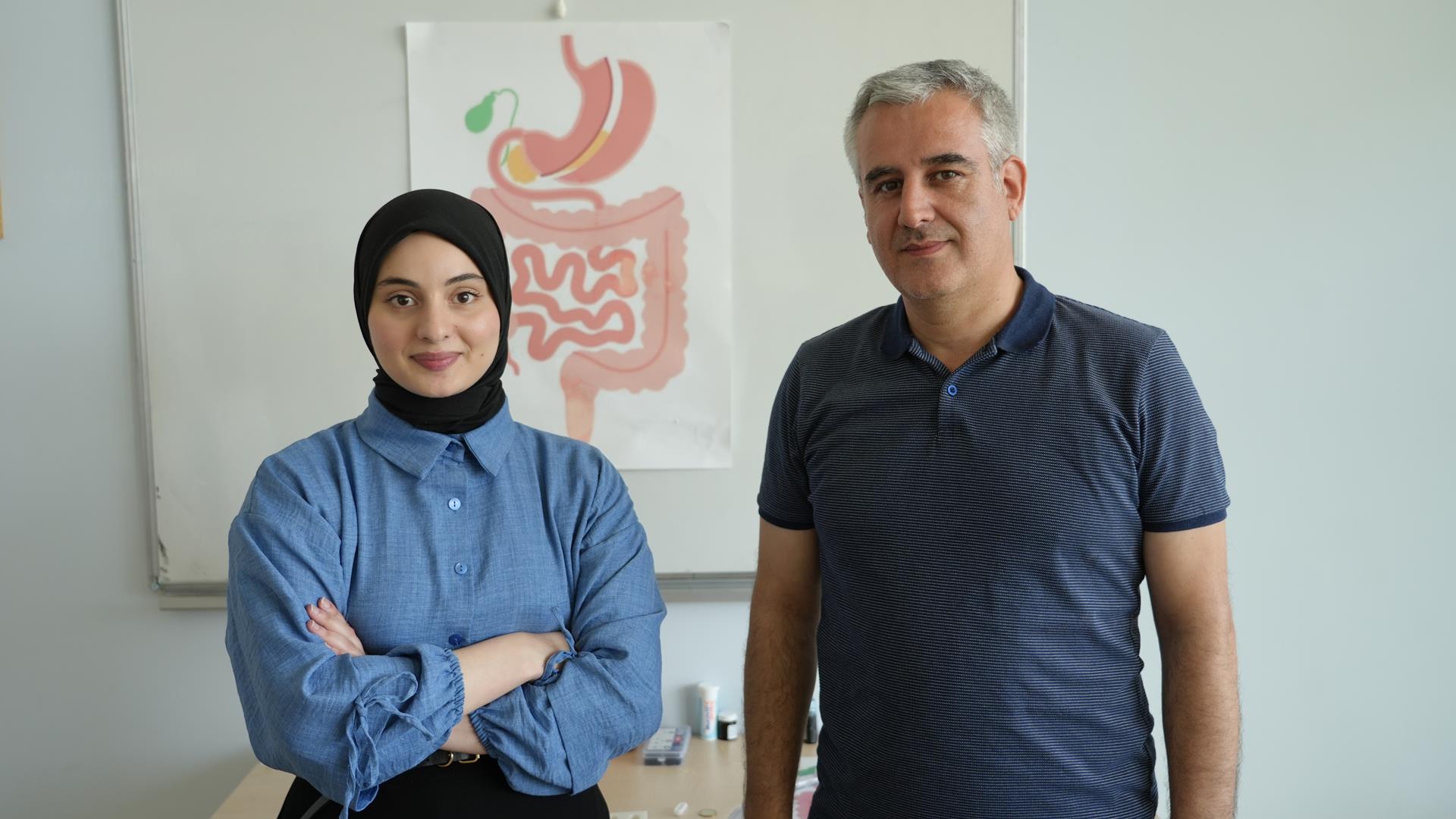 Details: https://kbumedya.karabuk.edu.tr/kbuden-saglikta-devrim-akilli-kapsul-projesi-teknofest-finalinde
Moroccan Twins Graduated from Karabuk University with Honors:
Moroccan twins Ouissam and Ouissal Ouakki, who are studying at Karabuk University’s Biomedical Engineering Department, completed their four-year undergraduate education with first and second degrees. Ouissam Ouakki, who was also the third in their faculty, and Ouissal Ouakki, the second in their department, were cited as exemplary with both their academic achievements and adaptation processes.
Details: https://kbumedya.karabuk.edu.tr/kbuden-saglikta-devrim-akilli-kapsul-projesi-teknofest-finalinde
Moroccan Twins Graduated from Karabuk University with Honors:
Moroccan twins Ouissam and Ouissal Ouakki, who are studying at Karabuk University’s Biomedical Engineering Department, completed their four-year undergraduate education with first and second degrees. Ouissam Ouakki, who was also the third in their faculty, and Ouissal Ouakki, the second in their department, were cited as exemplary with both their academic achievements and adaptation processes.
 Details: https://kbumedya.karabuk.edu.tr/fasli-ikizler-karabuk-universitesini-dereceyle-tamamladi
21 Innovative Projects in Health Technologies from KBU Students:
The Biomedical Engineering 2024-2025 Graduation Projects Exhibition organized at Karabuk University introduced innovative works developed in the field of health technologies. The traditional Graduation Projects Exhibition, which featured 21 innovative projects developed by Biomedical Engineering and Medical Engineering students, was successfully held in the 2024-2025 academic year as well. The projects, developed using advanced technologies such as artificial intelligence, machine learning, wearable technology, and biomaterials, aim to provide creative solutions to current problems in the field of healthcare. These studies, which have reached the prototype stage with the support of TÜBİTAK, are of great importance not only in terms of academic achievement but also in terms of social benefit and domestic technology production.
Details: https://kbumedya.karabuk.edu.tr/fasli-ikizler-karabuk-universitesini-dereceyle-tamamladi
21 Innovative Projects in Health Technologies from KBU Students:
The Biomedical Engineering 2024-2025 Graduation Projects Exhibition organized at Karabuk University introduced innovative works developed in the field of health technologies. The traditional Graduation Projects Exhibition, which featured 21 innovative projects developed by Biomedical Engineering and Medical Engineering students, was successfully held in the 2024-2025 academic year as well. The projects, developed using advanced technologies such as artificial intelligence, machine learning, wearable technology, and biomaterials, aim to provide creative solutions to current problems in the field of healthcare. These studies, which have reached the prototype stage with the support of TÜBİTAK, are of great importance not only in terms of academic achievement but also in terms of social benefit and domestic technology production.
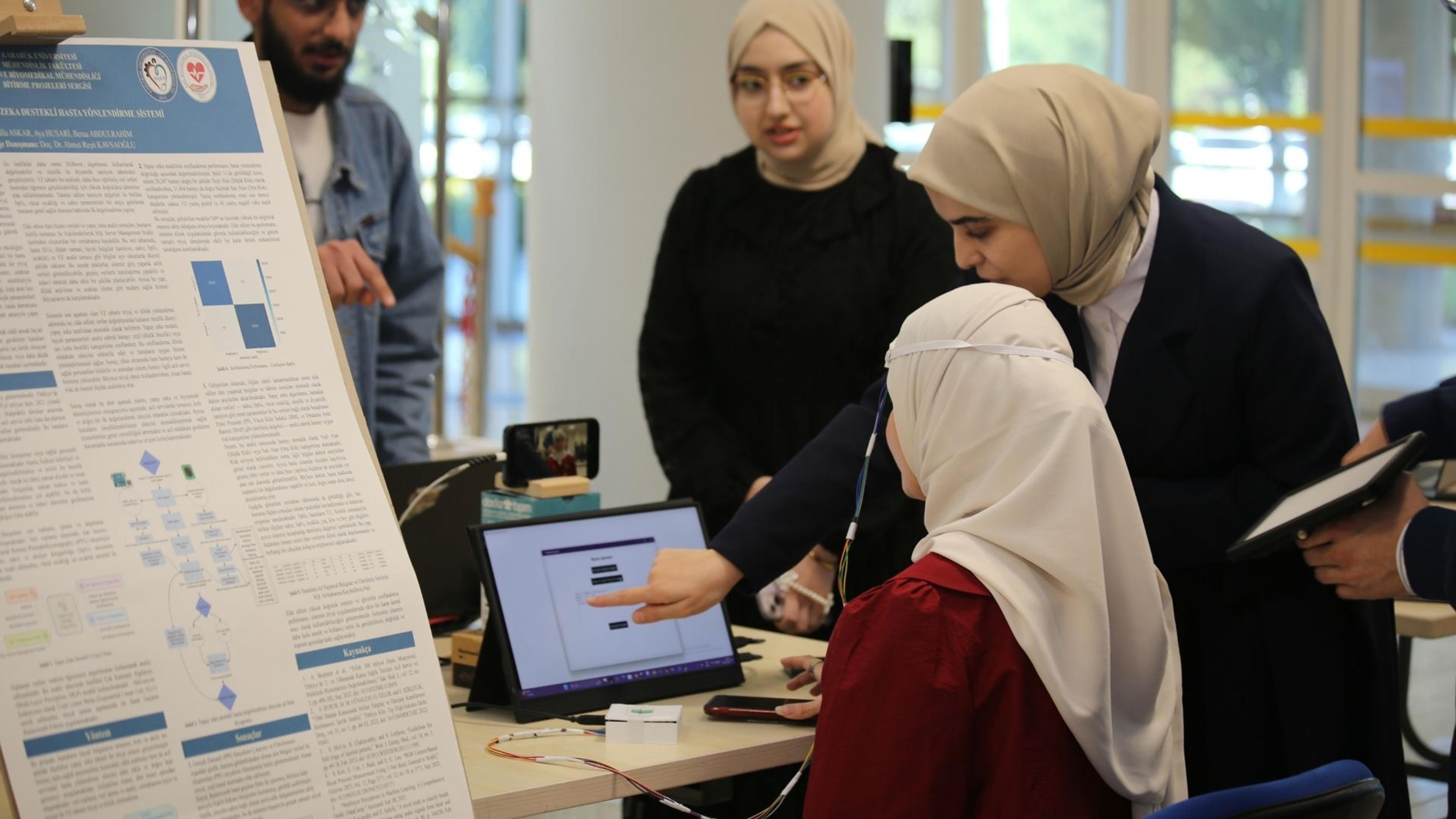 Details: https://kbumedya.karabuk.edu.tr/kbu-ogrencilerinden-saglik-teknolojilerine-21-yenilikci-proje
Smaller Wounds, Faster Healing with Shape Memory Implants:
Assoc. Prof. Dr. Daver Ali, a faculty member at the Biomedical Engineering Department of Karabuk University, aims to minimize the disadvantages of traditional implants and accelerate the healing process of patients with his project "Design and Production of Shape Memory Scaffold for Bone" prepared within the scope of TÜBİTAK 3501 Career Development Program.
Details: https://kbumedya.karabuk.edu.tr/kbu-ogrencilerinden-saglik-teknolojilerine-21-yenilikci-proje
Smaller Wounds, Faster Healing with Shape Memory Implants:
Assoc. Prof. Dr. Daver Ali, a faculty member at the Biomedical Engineering Department of Karabuk University, aims to minimize the disadvantages of traditional implants and accelerate the healing process of patients with his project "Design and Production of Shape Memory Scaffold for Bone" prepared within the scope of TÜBİTAK 3501 Career Development Program.
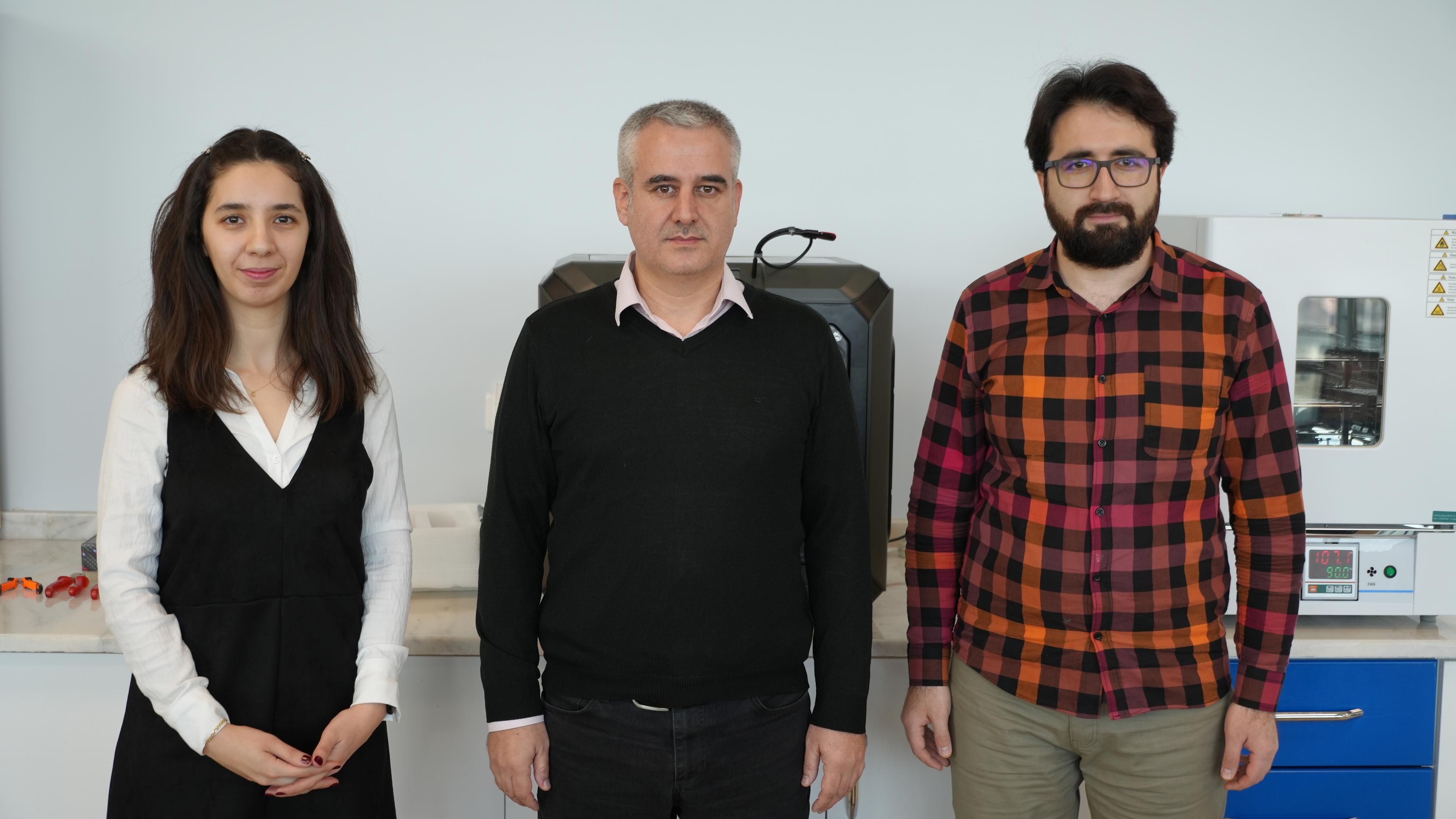 Details: https://kbumedya.karabuk.edu.tr/sekil-hafizali-implantlar-ile-daha-kucuk-yaralar-daha-hizli-iyilesme
A Pioneer Project in the Biomedical Field from KBU Academicians: Biological Age Determination from Saliva:
Karabuk University continues to stand out with its innovative projects. Academicians working in the Department of Biomedical Engineering of the Faculty of Engineering will enable easy determination of biological age from saliva samples with the TÜBİTAK COST project titled "Development of a Machine Learning Based Model Using IgG N-Glycome for Biological Age Determination from Saliva and Its Validation Based on Serum IgG N-Glycosylation Profiles".
Details: https://kbumedya.karabuk.edu.tr/sekil-hafizali-implantlar-ile-daha-kucuk-yaralar-daha-hizli-iyilesme
A Pioneer Project in the Biomedical Field from KBU Academicians: Biological Age Determination from Saliva:
Karabuk University continues to stand out with its innovative projects. Academicians working in the Department of Biomedical Engineering of the Faculty of Engineering will enable easy determination of biological age from saliva samples with the TÜBİTAK COST project titled "Development of a Machine Learning Based Model Using IgG N-Glycome for Biological Age Determination from Saliva and Its Validation Based on Serum IgG N-Glycosylation Profiles".
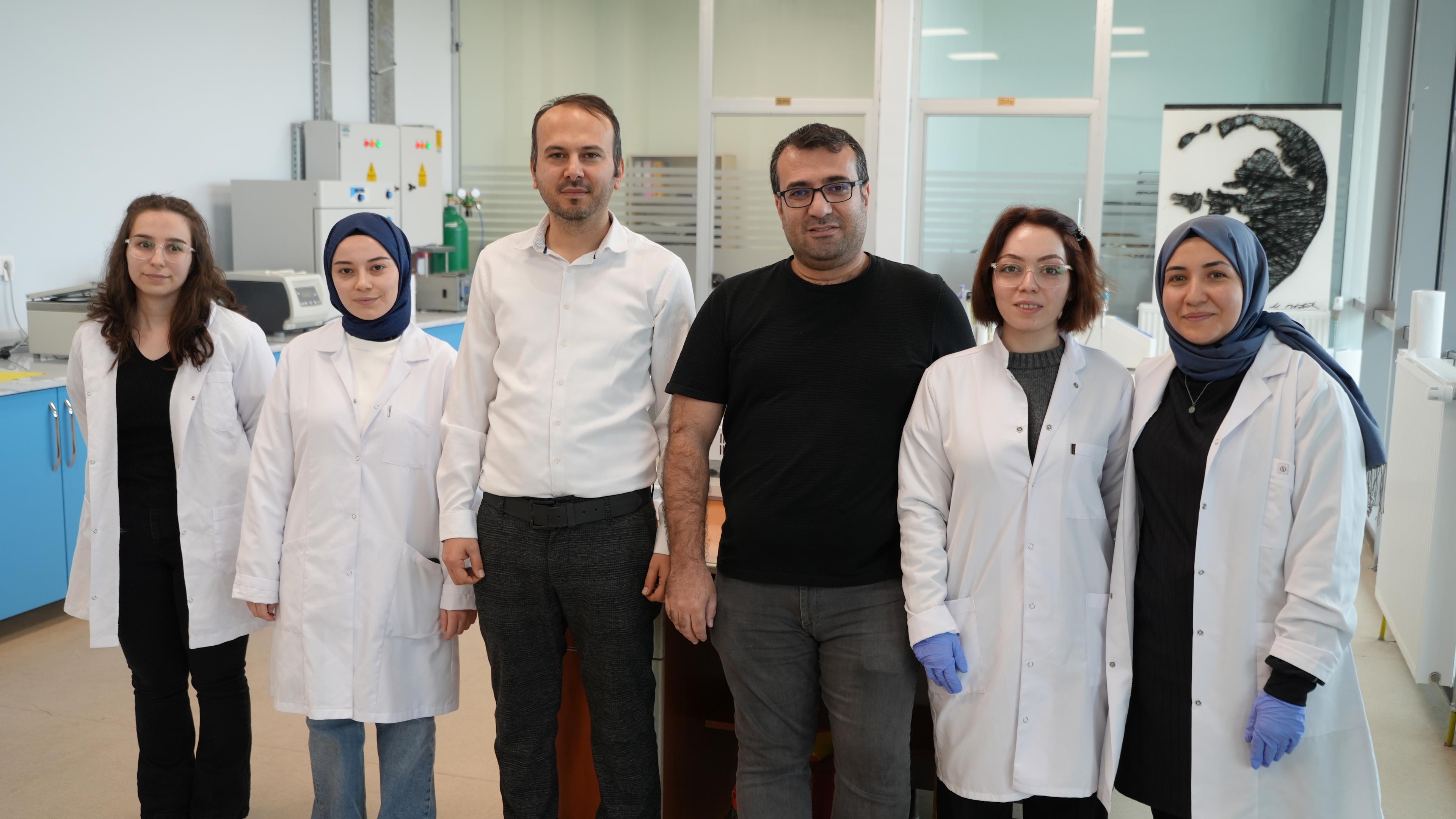 Details: https://kbumedya.karabuk.edu.tr/kbulu-akademisyenlerden-biyomedikal-alaninda-oncu-proje-tukurukten-biyolojik-yas-tespiti
Major Support from the European Union to an Academician
from KBU: Assist. Member Elif Çalık, with her project titled “An Ethical and Trustworthy Blockchain-Based System for Tissue and Organ Transplantation Processes”, has been awarded the Digi+ MSCA postdoctoral fellowship co-financed by Marie Sklodowska-Curie Actions (MSCA), one of the most important programs offered by the European Union for doctoral studies. The project, which aims to create a reliable, ethical and transparent data management system by using blockchain technology in processes that require sensitive data management such as organ transplantation, will constitute a pioneering model in terms of digital solutions.
Details: https://kbumedya.karabuk.edu.tr/kbulu-akademisyenlerden-biyomedikal-alaninda-oncu-proje-tukurukten-biyolojik-yas-tespiti
Major Support from the European Union to an Academician
from KBU: Assist. Member Elif Çalık, with her project titled “An Ethical and Trustworthy Blockchain-Based System for Tissue and Organ Transplantation Processes”, has been awarded the Digi+ MSCA postdoctoral fellowship co-financed by Marie Sklodowska-Curie Actions (MSCA), one of the most important programs offered by the European Union for doctoral studies. The project, which aims to create a reliable, ethical and transparent data management system by using blockchain technology in processes that require sensitive data management such as organ transplantation, will constitute a pioneering model in terms of digital solutions.
 Details: https://kbumedya.karabuk.edu.tr/kbulu-akademisyene-avrupa-birliginden-buyuk-destek
Referee from our Department at the National Veteran Tabletennis Tournament:
Details: https://kbumedya.karabuk.edu.tr/kbulu-akademisyene-avrupa-birliginden-buyuk-destek
Referee from our Department at the National Veteran Tabletennis Tournament:
Assoc. Prof. from the Department of Biomedical Engineering, Faculty of Engineering. Dr. Eftâl Şehirli served as a referee in the National Veteran Tabletennis Tournament held in Sinop on 19-21 July 2024.
 Medical and Biomedical Engineering 'Graduation Projects Exhibition' was held at KBU:
Medical and Biomedical Engineering 'Graduation Projects Exhibition' was held at KBU:
The "2023-2024 Graduation Projects Exhibition" organized by the students of Karabuk University Faculty of Engineering, Department of Medical and Biomedical Engineering took place in the foyer area in front of the Hamit Cepni Conference Hall. At the exhibition, Biomedical Engineering students presented their graduation projects and introduced them to the participants.
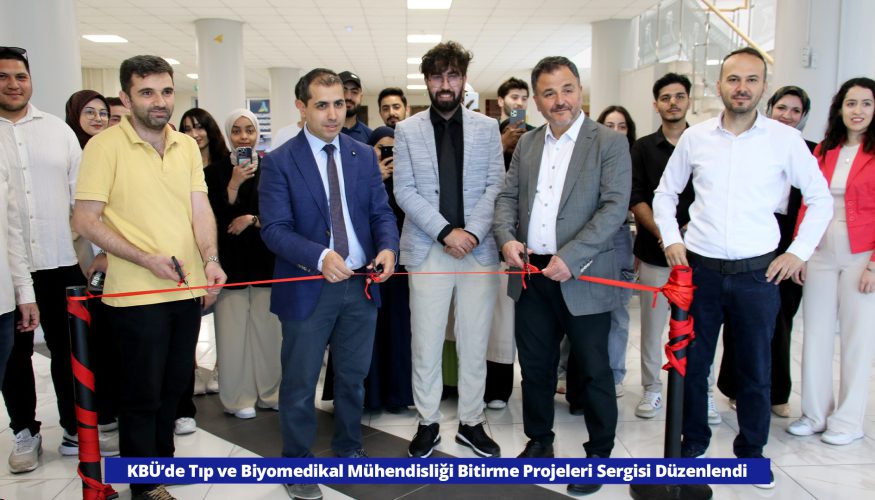 Details: https://kbumedya.karabuk.edu.tr/kbude-tip-ve-biyomedikal-muhendisligi-bitirme-projeleri-sergisi-duzenlendi/
Referee from KBU for WTT Feeder Cappadocia Table Tennis Tournament:
Details: https://kbumedya.karabuk.edu.tr/kbude-tip-ve-biyomedikal-muhendisligi-bitirme-projeleri-sergisi-duzenlendi/
Referee from KBU for WTT Feeder Cappadocia Table Tennis Tournament:
Assoc. Prof. from the Faculty of Engineering, Department of Biomedical Engineering. Dr. Eftâl Şehirli served as a referee in the WTT Feeder Cappadocia International Table Tennis Tournament held at Nevsehir Haci Bektas Veli University with the participation of 106 athletes from 24 different countries. WTT Feeder Cappadocia International Table Tennis Tournament took place on 13-17 May 2024 with the participation of 106 athletes from 24 different countries.
 Details: https://kbumedya.karabuk.edu.tr/wtt-feeder-cappadocia-masa-tenisi-turnuvasina-kbulu-2-hakem/
Rector Kırışık Presented Patent Certificates to KBU Academicians:
Details: https://kbumedya.karabuk.edu.tr/wtt-feeder-cappadocia-masa-tenisi-turnuvasina-kbulu-2-hakem/
Rector Kırışık Presented Patent Certificates to KBU Academicians:
The inventors' inventions were patented by the Karabuk University Rectorate and patent documents were delivered to them. Rector Kırışık, Dr. Lecturer He hosted member Hakan Yılmaz in the Rectorate office. During the meeting, Dr. Lecturer Member Hakan Yılmaz gave detailed information to Rector Kırışık about their work. Dr. Lecturer Information was shared on the "PID Based Portable Incubator Device" developed by member Hakan Yılmaz.
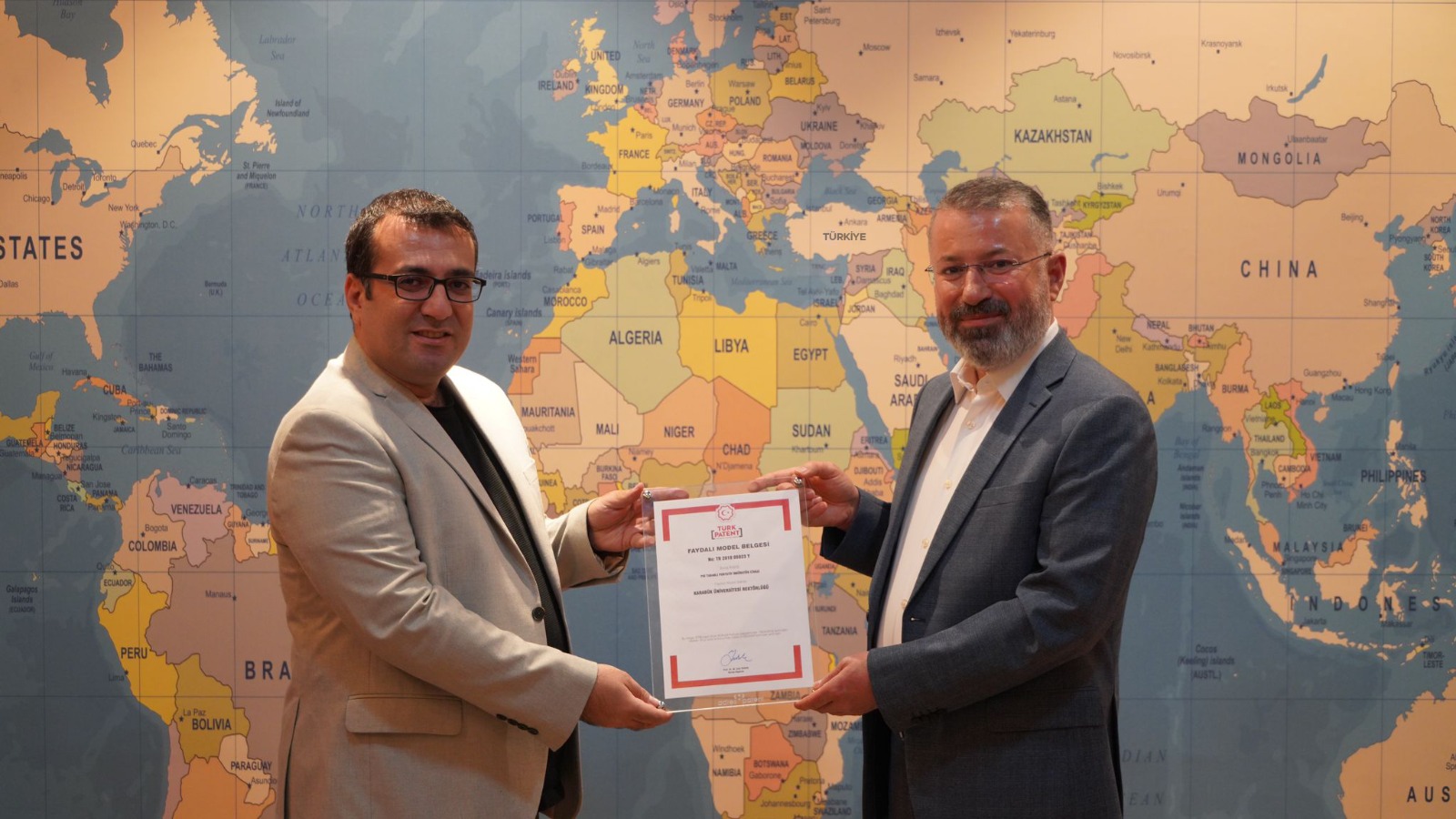 Details: https://kbumedya.karabuk.edu.tr/rektor-kirisik-kbulu-akademisyenlere-patent-belgelerini-takdim-etti/
The First Scientific Research Projects Awards were Given at KBU:
Details: https://kbumedya.karabuk.edu.tr/rektor-kirisik-kbulu-akademisyenlere-patent-belgelerini-takdim-etti/
The First Scientific Research Projects Awards were Given at KBU:
Karabuk University Rector Prof. Dr. Fatih Kırışık gave certificates of achievement to academicians who met the criteria determined according to the project score table in the Science, Health Sciences and Natural Sciences Category within the scope of Scientific Research Projects. Assoc. Prof., one of the faculty members of our department in the field of "Natural Sciences". Dr. Hacı Mehmet Kayılı and Dr. Lecturer Member Hakan Yılmaz received a certificate of appreciation at the award ceremony.
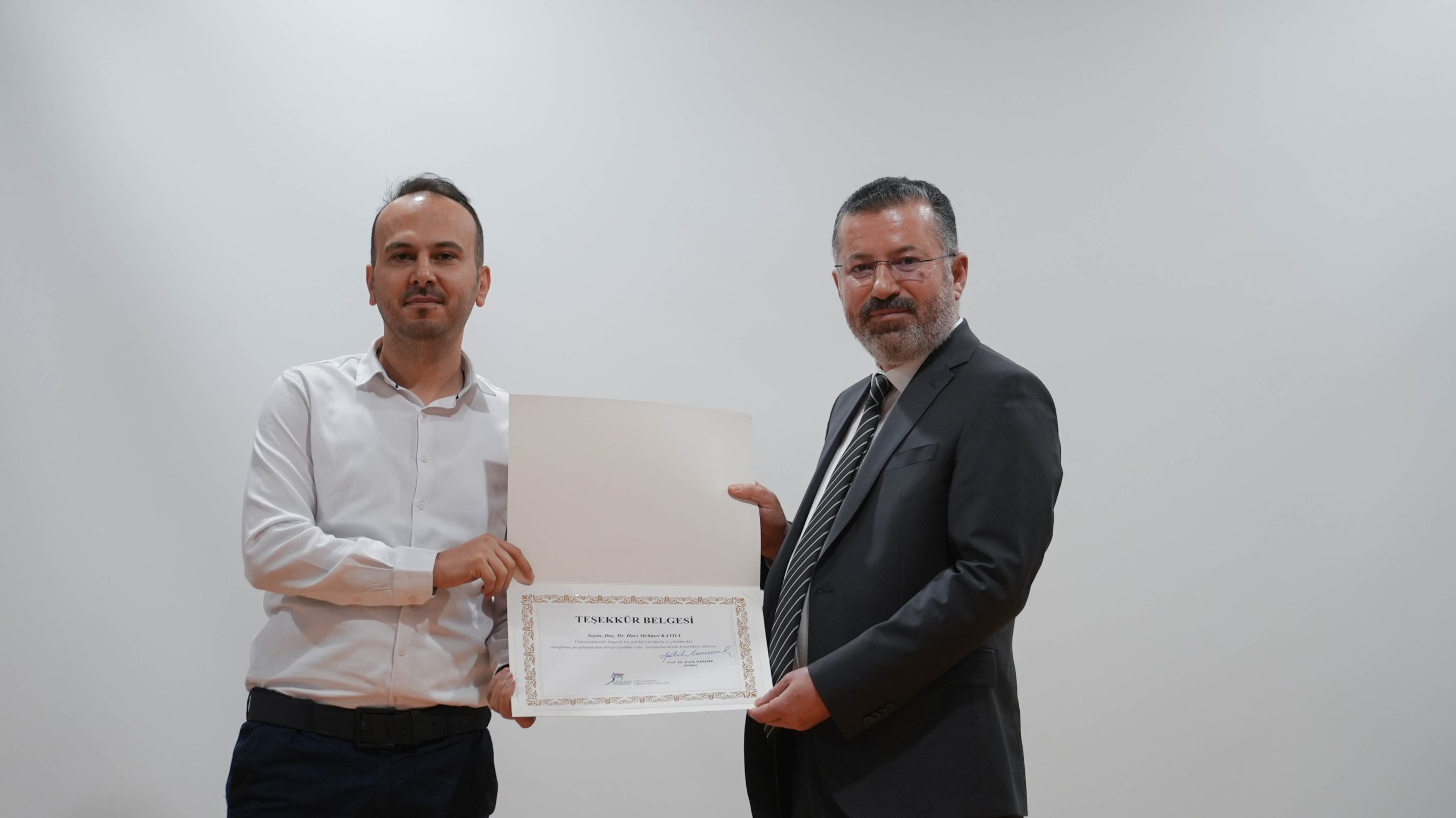 Details: https://kbumedya.karabuk.edu.tr/kbude-bilimsel-arastirma-projeleri-odullerinin-ilki-verildi/
Stomach Cancer Study by KBU Academicians: Artificial Intelligence Can Diagnose in 3 Hours:
Details: https://kbumedya.karabuk.edu.tr/kbude-bilimsel-arastirma-projeleri-odullerinin-ilki-verildi/
Stomach Cancer Study by KBU Academicians: Artificial Intelligence Can Diagnose in 3 Hours:
Academics in the Department of Biomedical Engineering, Faculty of Engineering, Karabuk University, have developed a new method for the rapid and accurate diagnosis of stomach cancer. Studies led by Assoc. Prof. Dr. Hacı Mehmet Kayılı and Dr. Hakan Yılmaz have shown that cancer can be diagnosed in a 3-hour analysis. Early and accurate diagnosis of stomach cancer is vital for effective and targeted treatment. While results from the pathology department can take at least a week with conventional methods, machine learning and glycomic technologies can provide results in just a 3-hour analysis. This method, based on the examination of the glycomic profiles of cancer cells, will enable much faster cancer detection than conventional biochemical analyses.
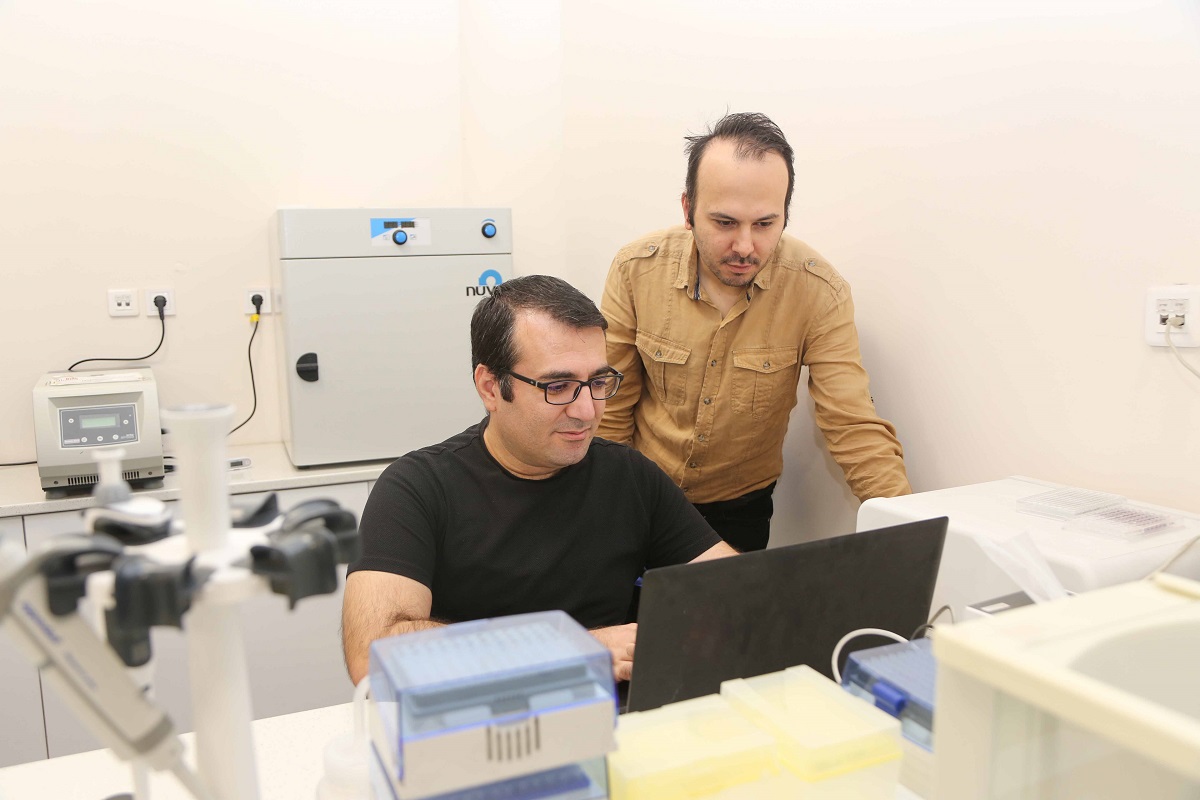 Details: https://kbumedya.karabuk.edu.tr/kbulu-akademisyenlerden-mide-kanseri-calismasi-yapay-zekayla-3-saatte-tani-konulabilecek
Ceremony for Rising Academicians at KBU:
Details: https://kbumedya.karabuk.edu.tr/kbulu-akademisyenlerden-mide-kanseri-calismasi-yapay-zekayla-3-saatte-tani-konulabilecek
Ceremony for Rising Academicians at KBU:
A ceremony was held for the academics who were promoted to the positions of professor and associate professor at Karabuk University. At the presentation ceremony, by Karabuk University Rector Prof. Dr. Fatih Kırışık, the a professorship certificate was presented to Prof. Dr. Mehmet Akif Erden.
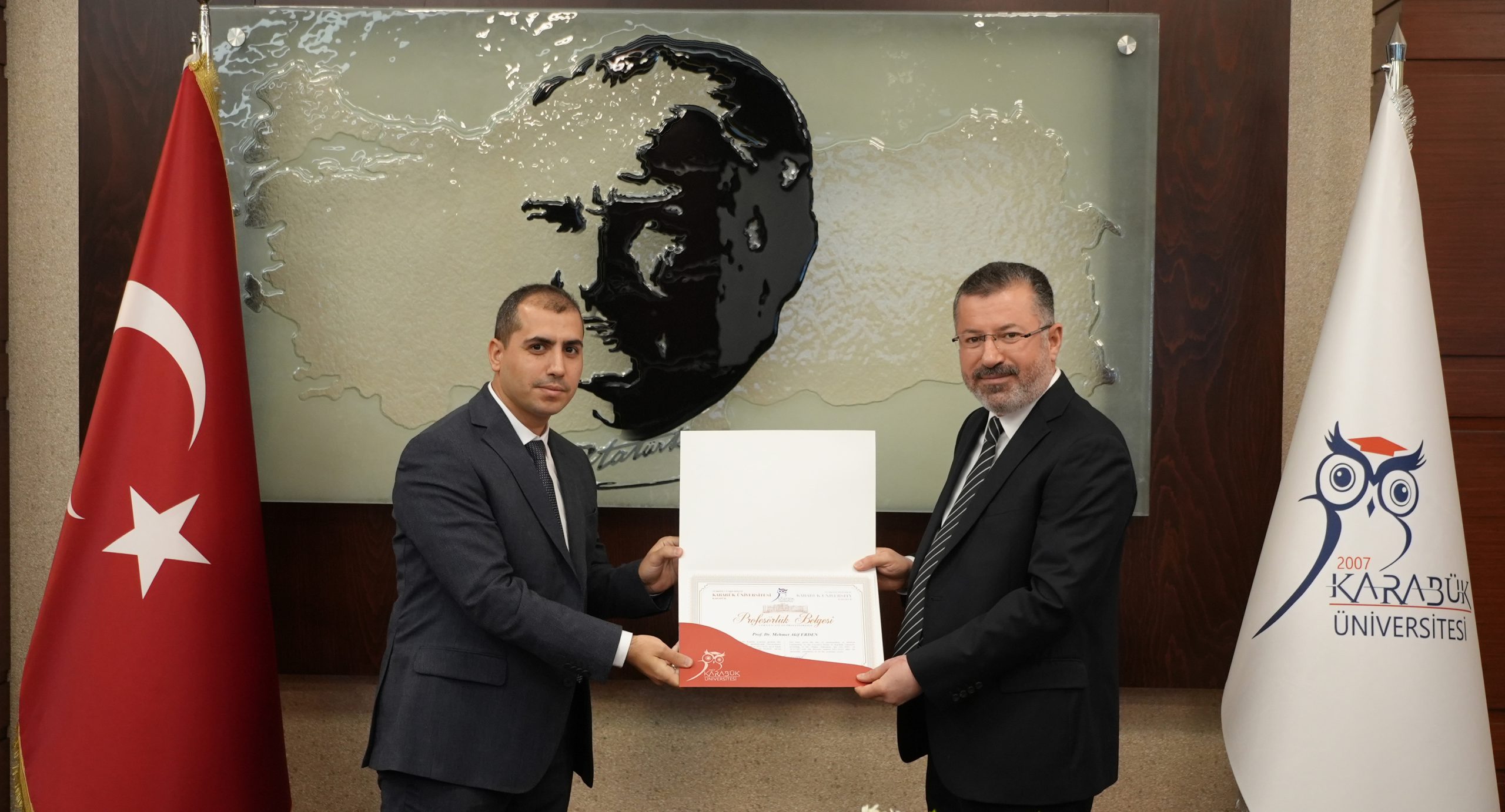 Details: https://kbumedya.karabuk.edu.tr/kbude-gorevde-yukselen-akademisyenlere-toren/
Biomedical Engineering Project Exhibition 2022 at KBU:
Details: https://kbumedya.karabuk.edu.tr/kbude-gorevde-yukselen-akademisyenlere-toren/
Biomedical Engineering Project Exhibition 2022 at KBU:
The graduation projects, organized by the Karabuk University Biomedical Engineering Department and completed by faculty students, were exhibited at the Hamit Çepni Conference Hall. The graduation projects of students from the Biomedical Engineering Department of the Faculty of Engineering were exhibited at the Karabuk University Hamit Çepni Conference Hall. The Biomedical Engineering project exhibition was opened by KBU Vice Rector Prof. Dr. Mustafa Yaşar.
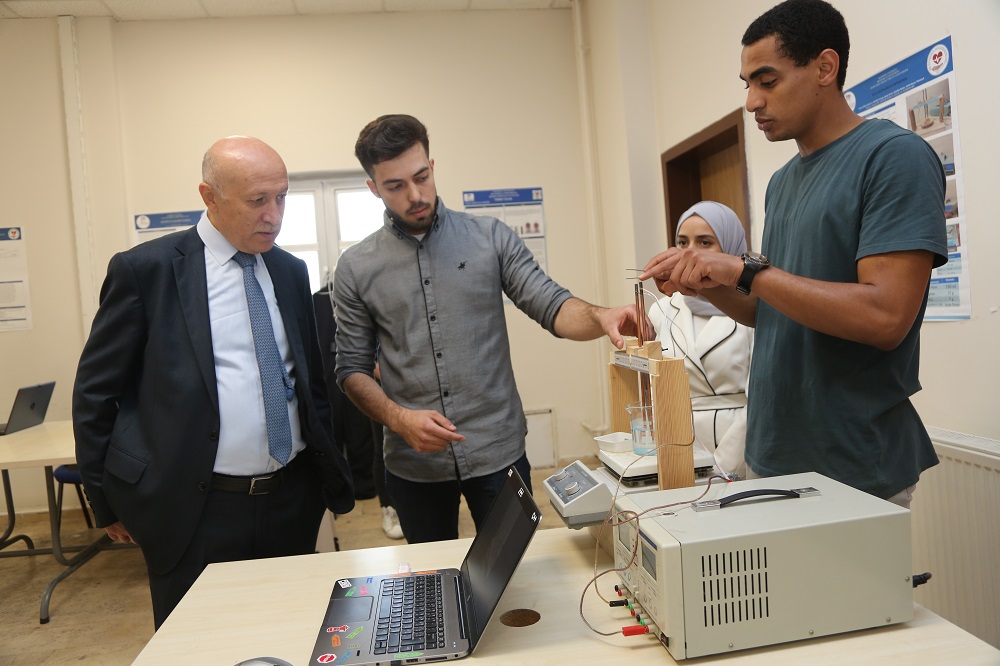 Details: https://kbumedya.karabuk.edu.tr/biyomedikal-muhendisligi-proje-sergisi-2022-kbude
Graduation Projects in Biomedical Engineering Exhibited:
Details: https://kbumedya.karabuk.edu.tr/biyomedikal-muhendisligi-proje-sergisi-2022-kbude
Graduation Projects in Biomedical Engineering Exhibited:
A project exhibition consisting of the graduation projects of the students of the KBU Biomedical Engineering Department, which included tools and equipment that make human life easier, was opened in the Karabuk University Hamit Çepni Foyer Area.

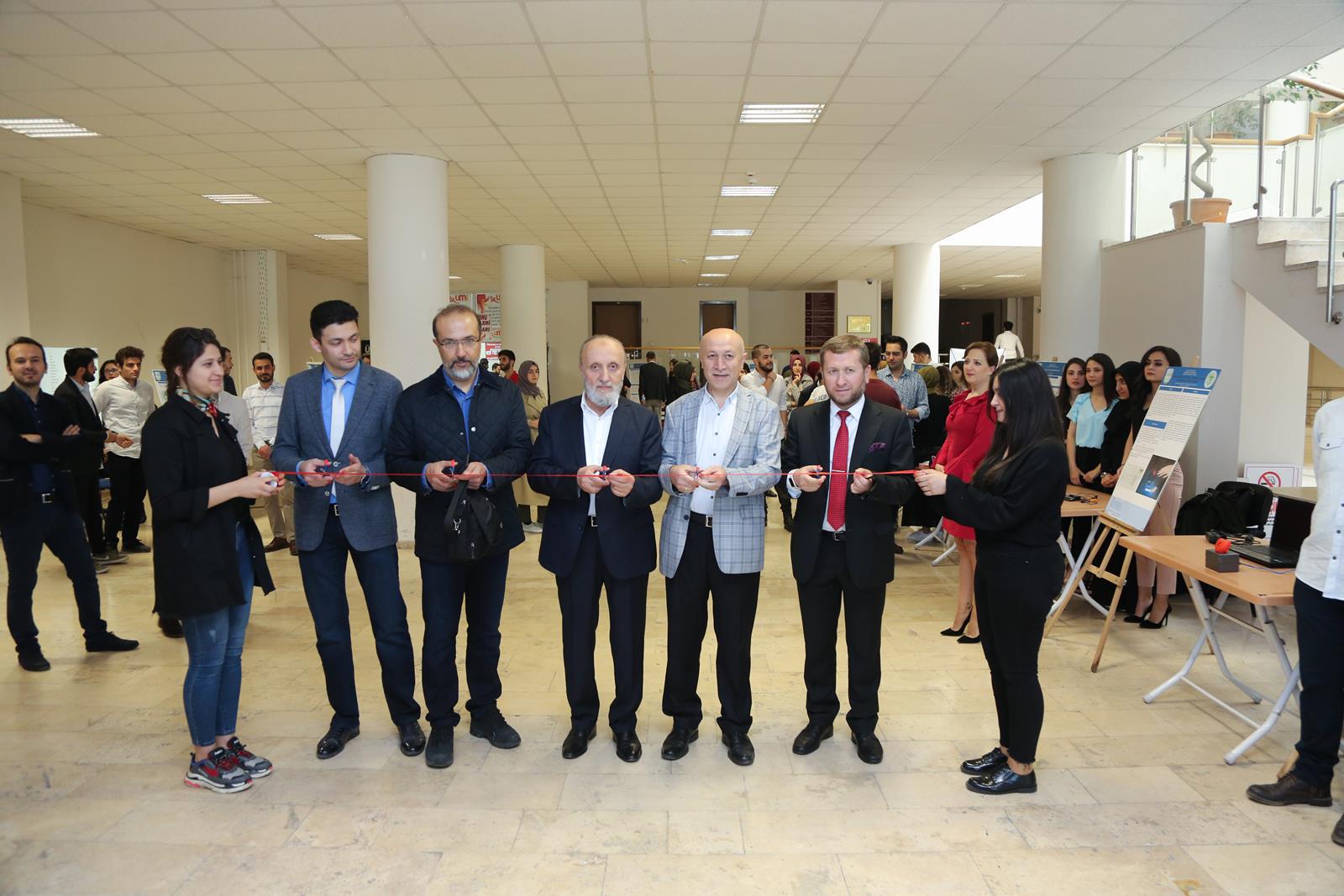 Details: https://kbumedya.karabuk.edu.tr/biyomedikal-muhendisligi-projelerini-sergiledi
Details: https://kbumedya.karabuk.edu.tr/biyomedikal-muhendisligi-projelerini-sergiledi